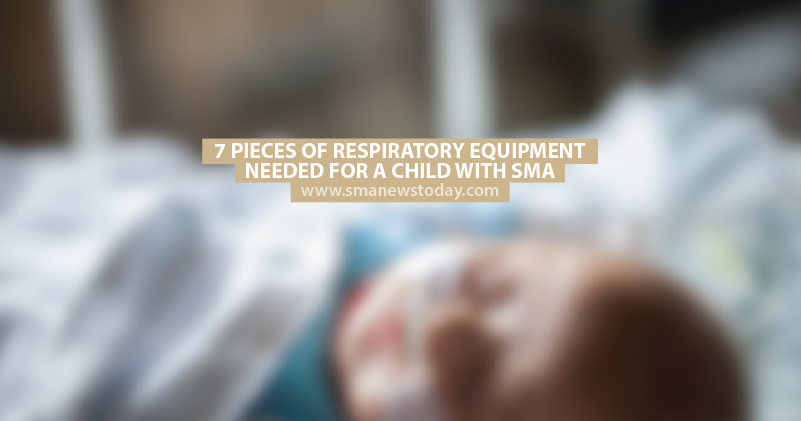7 Pieces of Respiratory Equipment Needed for a Child With SMA
Written by |

Spinal muscular atrophy (SMA) is a genetic disease where, over time, the muscles become weakened. In cases of SMA type 1 and SMA type 2, weakened chest muscles affect the child’s ability to breathe, so you will need to have some items of respiratory equipment in your home so that you can treat your child on a daily basis.
The type of respiratory equipment needed will depend on the patient and the severity of their SMA. It should be discussed with your health care team; however, according to Cure SMA, it’s likely that the following pieces of equipment will be required:
Cough assist machine: This device helps to remove excess mucus from the lungs, and aids breathing
Method for mucus mobilization (or airway secretion): This can be done manually or with an electronic device such as an oscillating vest or an interpulmonary percussive ventilation (IPV) machine.
Method for postural drainage: Positioning the child so that their head and chest is lower than their upper legs and buttocks allows mucus to drain from the lower airways to the upper airways for easier removal. This can be done with pillows, cushions or wedges.
MORE: Caring for a child with SMA when they have a cold
Pulse oximeter: This device will help determine the oxygen saturation in your child’s bloodstream.
BiPAP machine: This device will help synchronize your child’s breathing, and is often used at night or when they’re unwell.
Mechanical ventilator: This device allows your child to get continuous oxygen through either a face mask or a tracheostomy tube.
Portable suction machine: This device is used to remove excess mucus and saliva from your child’s mouth.
Supplementary oxygen: Children with SMA type 1 may need supplementary oxygen in emergencies.
MORE: Popular hashtags for raising awareness of SMA on social media
SMA News Today is strictly a news and information website about the disease. It does not provide medical advice, diagnosis or treatment. This content is not intended to be a substitute for professional medical advice, diagnosis, or treatment. Always seek the advice of your physician or another qualified health provider with any questions you may have regarding a medical condition. Never disregard professional medical advice or delay in seeking it because of something you have read on this website.



